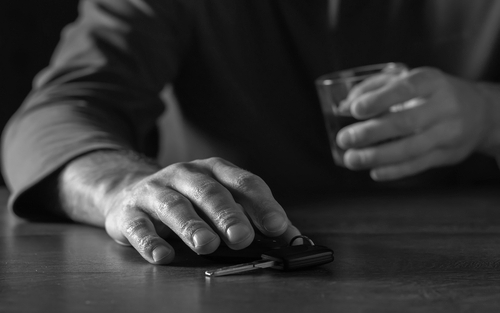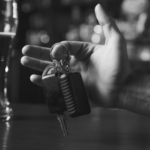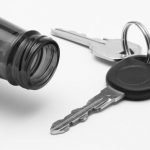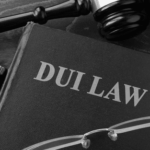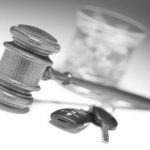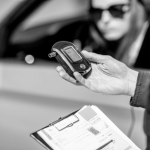If you find yourself arrested for a DUI in North Dakota, you will inevitably be asked to take a chemical test[1] to determine how much alcohol is in your blood. Usually, the arresting officer will ask you to submit to a chemical breath test by blowing into a machine called the Intoxilyzer 8000. If you agree to do so, the government will use the test result against you in an effort to prove that you were Driving Under the Influence. Nevertheless, taking the test is usually the right decision because saying no to the test means you will be charged with DUI / Refusal. As bad as it might seem to provide the government with a test result that will be used against you, refusing usually just makes things worse. Generally speaking, it is more difficult for the government to prove that the chemical test result is accurate, as it is required to do in a DUI prosecution, than it is to prove that you refused the test. Furthermore, a refusal will expose you to heightened consequences with regard to your driving privileges.
While refusing a chemical test limits your options and your defenses, it doesn’t eliminate them completely. This blog post will explore a few defenses to DUI / Refusal. Below are some questions an attorney will ask you to determine what defenses might be available to you.
- Were you under arrest when the officer asked you to submit to the chemical test?
On numerous occasions, the North Dakota Supreme Court has explained that “it is axiomatic that before there can be a ‘refusal’ to submit to testing…there must be a valid request for testing.” Throlson v. Backes, 466 N.W.2d 124, 126 (N.D. 1991). In order to make a “valid request for testing” an officer must comply with N.D.C.C. § 39-20-01, which holds that a chemical test “must be administered at the direction of a law enforcement officer only after placing the individual under arrest for violation of section 39-08-01[2] or an equivalent offense.” Occasionally, police officers fail to make a DUI arrest before requesting the chemical test. When that happens the failure to submit to the chemical test cannot be considered a refusal because the request for testing was invalid.
- Did you ask for an attorney, and, if so, were you given a reasonable opportunity to contact one?
In Kuntz v. State Highway Commissioner, 405 N.W.2d 285, 290 (N.D.1987), the North Dakota Supreme Court held that a person arrested for driving under the influence of intoxicating liquor has a qualified statutory right to consult with an attorney before deciding whether to submit to a chemical test. In that case, the court explained:
We hold that if an arrested person asks to consult with an attorney before deciding to take a chemical test, he must be given a reasonable opportunity to do so if it does not materially interfere with the administration of the test. If he is not given a reasonable opportunity to do so under the circumstances, his failure to take the test is not a refusal upon which to revoke his license under Chapter 39–20, N.D.C.C.
Just to be clear, this right to consult an attorney prior to deciding whether to take a chemical test is not the same as the constitutional rights to counsel under the Fifth and Sixth Amendments. This right has significant limitations. For one thing, the officer is not required to tell you that this right exists, so it won’t affect your case unless you specifically asked to speak to a lawyer. The courts have also imbued police officers with significant discretion on the nature and timing of the request, as well as the length of time you might be given to contact an attorney.
More on this statutory right to counsel here.
- Did you consent to the test within a reasonable time after the initial refusal?
Occasionally, a person will reconsider their decision to refuse the test almost immediately. In Lund v. Hjelle, 224 N.W.2d 552, 557 (N.D. 1974), the North Dakota Supreme Court discussed this very scenario. According to the Lund decision:
[W]e hold that where, as here, one who is arrested for driving while under the influence of intoxicating liquor first refuses to submit to a chemical test to determine the alcoholic content of his blood and later changes his mind and requests a chemical blood test, the subsequent consent to take the test cures the prior first refusal when the request to take the test is made within a reasonable time after the prior first refusal; when such a test administered upon the subsequent consent would still be accurate; when testing equipment or facilities are still readily available; when honoring a request for a test, following a prior first refusal, will result in no substantial inconvenience or expense to the police; and when the individual requesting the test has been in police custody and under observation for the whole time since his arrest.
A DUI / Refusal charge presents unique challenges and enhanced sanctions against your driving privileges, so it’s important to contact an experienced attorney as soon as possible if you’ve been charged with one. Even if your case doesn’t lend itself to any of the above defenses you may still be able avoid the harshest consequences for your driving privileges by curing your refusal. If you’ve been charged with DUI / Refusal, please contact SW&L Attorneys at 701-297-2890.
For future articles, check out our blog. This article is for informational purposes only and is subject to our disclaimer.
[1] The chemical test is usually a breath test, but it can also be a blood or urine test.
[2] N.D.C.C. § 39-08-01 is North Dakota’s criminal DUI statute.


